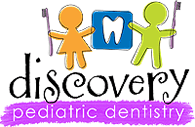What do you do for a 1 year old?
Although it may seem really early, the American Academy of Pediatric Dentistry and the American Academy of Pediatrics both recommend that your child be seen by a Pediatric Dentist by age 1 for a number of important reasons. The focus of an infant dental visit is preventive, educating parents and caretakers about oral health care from an early age. At this visit, we will do an oral screening, provide you with oral hygiene instructions, and discuss pacifier, finger, or other oral habits.
We also highly value an early visit by 1 year of age because we want to "catch" cavities early. In its beginning stage, a cavity does not always have to be treated with a filling or restoration. Simple diet and oral hygiene instructions along with proper fluoride treatment and/or a fluoride varnish treatment may suffice in keeping the tooth healthy. By the time some children see a Pediatric Dentist at 3 years of age, they may have extensive (rampant) dental disease and require many fillings and possibly some extractions!
At this first visit your child may cry and not cooperate well during the appointment, so we will ask for your help during the exam. A knee-to-knee exam keeps your baby in your lap, where he/she will feel safe and secure. By laying your child down in your lap, we can get a good look at most of his/her teeth and determine the right guidance plan for your child's specific needs. As regular dental visits are kept every 6 months, this process will become easier and easier for your child. Eventually your child will enjoy coming to see us for his/her regular six month dental visits.















